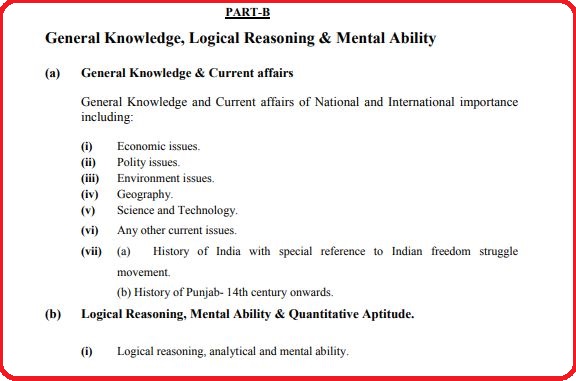PPSC Lecturer Syllabus 2022 Check Exam Pattern Here: The Candidates who applied for the Lecturer post & looking for the Lecturer Syllabus & Exam Pattern 2022. To prepare for the Punjab Lecturer Examination so that candidates looking for the various site to get. In this article, they are going to share the Punjab PSC Lecturer Exam Pattern & PPSC Lecturer Exam Syllabus 2022. The applicants can get from this article. As per the various site, I came to know about the PPSC Lecturer 2022 syllabus Check out this article to know the exam pattern & exam Syllabus 2022.

PPSC Lecturer Syllabus 2022 -Overview
| PPSC Lecturer 2022 syllabus Check Here | |
| Organization Name | Punjab Public Service Commission (PPSC) |
| Post Name | Lecturer |
| Category | Syllabus |
| Selection Process | Written Competitive Examination, Interview |
| Job Location | Punjab |
| Official Site | ppsc.gov.in |
PPSC Lecturer Exam Pattern 2022
| Name of the Subjects | Number of Marks |
| Part A: Subject Knowledge | 400 |
Part B:
|
80 |
| Total | 480 Marks |
| Time Duration: 2 Hours |
|
| Questions Type: Objective Type Questions |
|
| Interview Marks: 60 Marks | |
| Total Questions: 120 Questions | |
- Questions will ask in the English Language only.
- Part A 100 Questions & Part B 2 Questions Totally 120 Questions Asked on Question Paper.
- Each Wright Answer carries 4 marks for each question.
- There will be a negative Mark for Each Wrong answer Deduct One Mark.
PPSC Lecturer Exam Syllabus 2022
| PART A: Subject Knowledge | |
| Lecturer English Syllabus |
|
| Lecturer Physics Syllabus |
|
| Lecturer Mathematics Syllabus |
|
| Lecturer Medical Lab Technology Syllabus |
|
| Lecturer Chemistry Syllabus |
|
| Lecturer Library Science Syllabus |
|
| Part B: General Knowledge, Logical Reasoning & Mental Ability | |
| General Knowledge & Current affairs |
|
| Logical Reasoning, Mental Ability & Quantitative Aptitude |
|